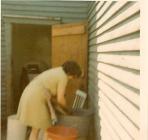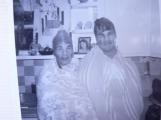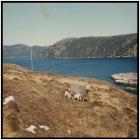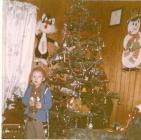1
Despite the adversities of the industry and the challenges of isolation, life in these small coastal fishing communities would not be described poorly. While it was certainly not an easy life, the families and citizens who called these towns home were quite content with their way of life.Homes in these towns were usually bungalows or two story houses, heated by wood and coal. Fishing was the primary occupation of these towns, but families also kept small livestock, like hens or sheep, as well as gardens to grow their own vegetables. There was much work that had to be done, so children as well as adults were often responsible for many household chores. Responsibilities included tasks like gathering wood, making bread, fetching water, or tending the garden.
2
Before the time of the washing machine, everything was handwashed.1960-1970
Pass Island, Newfoundland, Canada

4
Most towns held church services on Sundays with a lay reader, unless a minister came to visit from one of the larger towns. Services would be held on holidays like Easter Sunday and Christmas, along with community organized festivities. Christmas traditions such as soup dinners, mummering, and card games were common. Another common tradition was the tree was only put up and decorated on Christmas Eve, after the children had gone to sleep. The presents were simpler than the extravagant gift-giving common today; children usually received a stocking with perhaps a single small toy, a pair of socks, or some treat like peppermint candies, apples or oranges.6
Any mummers allowed in? Mummering was and still is a Christmas time tradition in Newfoundland.1960-1970
Pass Island, Newfoundland, Canada

8
Friends and family gathered together for Christmas celebrations1950-1960
Rencontre West, Newfoundland, Canada







